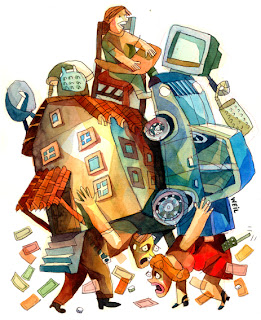
“The Holiday Hangover”
Cooking, cleaning, working
And the world goes round
Waiting in fear for your credit card bill in January might be enough to sink you into a hole of “not wanting to open the mailbox.” However, a larger issue that I’d like to share is what I like to call (and am suffering through right now) the “Holiday Hangover.” To me, the Holiday Hangover is not so much a dehydrated headache after 2 weeks of company parties and long nights of cutting and cooking while the brandy flows freely. No, no… The Holiday Hangover is much more complex than your body simply needs some rest, plenty of juice, and a chance to “dry out.”
The Holiday Hangover consists of similar elements a normal hangover, dehydration, anxiety, rapid emotional swings (like tearing up at a Telecom commercial). However, the Holiday Hangover also comes with a vicious swath of guilt (What did I do with all these days off?), worry (Did I make enough people happy, did I get the right gifts, who did I forget?), remorse (Did I spend way too much money?), angst (Did I really have a good holiday?), and last but not least, and defiantly the worst… anxiety (Is it all over, and now I have to hunker down for the boring winter and go back to work?)
The holidays are like a 6 week stretch that breaks our routine into a sometimes frenzied rush, yet a pleasant coming of dates and events; we eagerly await for certain nights of the year, hosting parties, and attending events. However, once it’s all over, we face a big let down of “back to old routine.” Throw in there “The New Year” and the week or so that you’ve spent telling yourself all of the things that you’re going to accomplish in the next 12 months, and yes, you’re going to feel a little intimidation mixed with a lot of other things.
There’s no cure for the Holiday Hangover. It’s something that you just need mid January and early February to “ride out.” I found out a few things that actually do help. For starters, you can stop thinking of “the year” as this huge expanse of goals and deadlines. Take things in small steps. Another thing I find helpful is look over the past year and look at all of the good things that have happened. I usually find this comforting, to look back in reflection, than ahead in panic. I find it helpful to notice that the good things kind of just “happened,” without me causing them to do so. And last, to really help me out, I say to myself, “Yes, I enjoyed my holiday. I’m sad that it’s over, but now, it’s back to work.”
It’s hard to say the fun is over, but really, I find it doesn’t have to be that way. After all, spring is coming soon, and the smell of a Summer BBQ does usually ease the burden of “back to work.”
So, relax. Some cases may be worse than others, but I think we all suffer a little from the Holiday Hangover.
Related Anxiety Tips and Humor Articles:Relieve your AnxietyNew Anxiety and Stress Busters10 Tips during Terrorist AttacksAnxiety during the Holidays10 Tips that will not Help at All
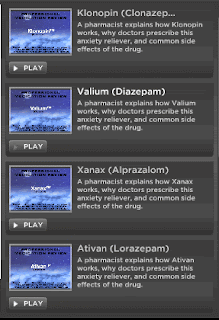 We found a series of short videos about a Pharmacist's review of the most common FDA approved drugs to treat anxiety: Xanax (Alprazolam), Ativan (Lorazepam), Valium (Diazepam), Klonopin (Clonazepam), Restoril (Temazepam), and some others used to treat insomnia like Lunesta and Ambien (Zolpidem).
We found a series of short videos about a Pharmacist's review of the most common FDA approved drugs to treat anxiety: Xanax (Alprazolam), Ativan (Lorazepam), Valium (Diazepam), Klonopin (Clonazepam), Restoril (Temazepam), and some others used to treat insomnia like Lunesta and Ambien (Zolpidem).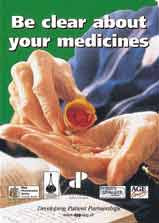
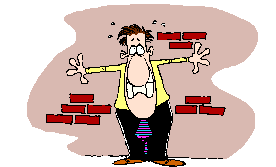
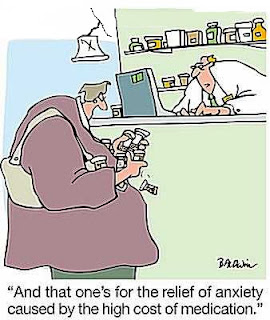


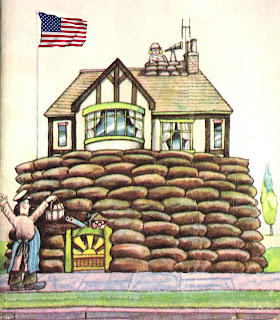
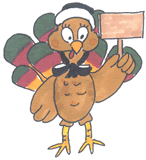
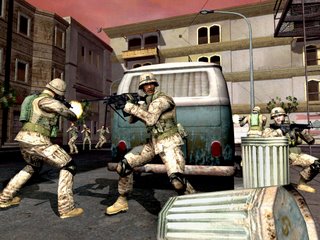 “It's a Video Game, and an Army Recruiter”
“It's a Video Game, and an Army Recruiter”